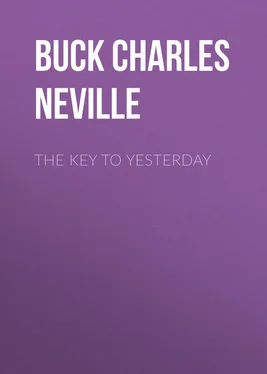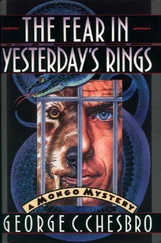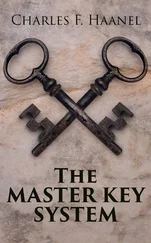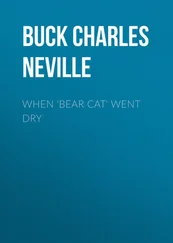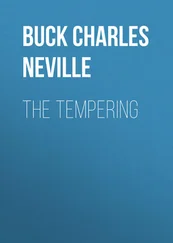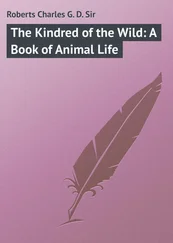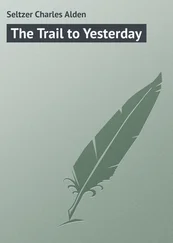Charles Buck - The Key to Yesterday
Здесь есть возможность читать онлайн «Charles Buck - The Key to Yesterday» — ознакомительный отрывок электронной книги совершенно бесплатно, а после прочтения отрывка купить полную версию. В некоторых случаях можно слушать аудио, скачать через торрент в формате fb2 и присутствует краткое содержание. ISBN: , Жанр: foreign_prose, foreign_antique, foreign_language, на английском языке. Описание произведения, (предисловие) а так же отзывы посетителей доступны на портале библиотеки ЛибКат.
- Название:The Key to Yesterday
- Автор:
- Жанр:
- Год:неизвестен
- ISBN:http://www.gutenberg.org/ebooks/33759
- Рейтинг книги:3 / 5. Голосов: 1
-
Избранное:Добавить в избранное
- Отзывы:
-
Ваша оценка:
- 60
- 1
- 2
- 3
- 4
- 5
The Key to Yesterday: краткое содержание, описание и аннотация
Предлагаем к чтению аннотацию, описание, краткое содержание или предисловие (зависит от того, что написал сам автор книги «The Key to Yesterday»). Если вы не нашли необходимую информацию о книге — напишите в комментариях, мы постараемся отыскать её.
The Key to Yesterday — читать онлайн ознакомительный отрывок
Ниже представлен текст книги, разбитый по страницам. Система сохранения места последней прочитанной страницы, позволяет с удобством читать онлайн бесплатно книгу «The Key to Yesterday», без необходимости каждый раз заново искать на чём Вы остановились. Поставьте закладку, и сможете в любой момент перейти на страницу, на которой закончили чтение.
Интервал:
Закладка:
Saxon felt a cloud sweep over the sunshine shed by her praise. His back was turned, but his face grew suddenly almost gray.
The girl only heard him say quietly:
“Señor Ribero spoke of South America. This was in Yucatan.”
When the last canvas had been criticized, Saxon led the girl out to the shaded verandah.
“Do you know,” she announced with severe directness, “when I know you just a little better, I’m going to lecture you?”
“Lecture me!” His face mirrored alarm. “Do it now – then, I sha’n’t have it impending to terrorize better acquaintance.”
She gazed away for a time, her eyes clouding with doubt. At last, she laughed.
“It makes me seem foolish,” she confessed, “because you know so much more than I do about the subject of this lecture – only,” she added with conviction, “the little I know is right, and the great deal you know may be wrong.”
“I plead guilty, and throw myself on the mercy of the court.” He made the declaration in a tone of extreme abjectness.
“But I don’t want you to plead guilty. I want you to reform.”
Not knowing the nature of the reform required, Saxon remained discreetly speechless.
“You are the first disciple of Frederick Marston,” she said, going to the point without preliminaries. “You don’t have to be anybody’s disciple. I don’t know a great deal about art, but I’ve stood before Marston’s pictures in the galleries abroad and in this country. I love them. I’ve seen your pictures, too, and you don’t have to play tag with Frederick Marston.”
For a moment, Saxon sat twisting his pipe in his fingers. His silence might almost have been an ungracious refusal to discuss the matter.
“Oh, I know it’s sacrilege,” she said, leaning forward eagerly, her eyes deep in their sincerity, “but it’s true.”
The man rose and paced back and forth for a moment, then halted before her. When he spoke, it was with a ring like fanaticism in his voice.
“There is no Art but Art, and Marston is her prophet. That is my Koran of the palette.” For a while, she said nothing, but shook her head with a dissenting smile, which carried up the corners of her lips in maddeningly delicious fashion. Then, the man went on, speaking now slowly and in measured syllables:
“Some day – when I can tell you my whole story – you will know what Marston means to me. What little I have done, I have done in stumbling after him. If I ever attain his perfection, I shall still be as you say only the copyist – yet, I sometimes think I would rather be the true copyist of Marston than the originator of any other school.”
She sat listening, the toe of one small foot tapping the floor below the short skirt of her gown, her brow delightfully puckered with seriousness. A shaft of sun struck the delicate color of her cheeks, and discovered coppery glints in her brown hair. She was very slim and wonderful, Saxon thought, and out beyond the vines the summer seemed to set the world for her, like a stage. The birds with tuneful delirium provided the orchestration.
“I know just how great he is,” she conceded warmly; “I know how wonderfully he paints. He is a poet with a brush for a pen. But there’s one thing he lacks – and that is a thing you have.”
The man raised his brows in challenged astonishment.
“It’s the one thing I miss in his pictures, because it’s the one thing I most admire – strength, virility.” She was talking more rapidly as her enthusiasm gathered headway. “A man’s pictures are, in a way, portraits of his nature. He can’t paint strong things unless he is strong himself.”
Saxon felt his heart leap. It was something to know that she believed his canvases reflected a quality of strength inherent to himself.
“You and your master,” she went on, “are unlike in everything except your style. Can you fancy yourself hiding away from the world because you couldn’t face the music of your own fame? That’s not modesty – it’s insanity. When I was in Paris, everybody was raving about some new pictures from his brush, but only his agent knew where he actually was, or where he had been for years.”
“For the man,” he acceded, “I have as small respect as you can have, but for the work I have something like worship! I began trying to paint, and I was groping – groping rather blindly after something – I didn’t know just what. Then, one day, I stood before his ‘Winter Sunset.’ You know the picture?” She nodded assent. “Well, when I saw it, I wanted to go out to the Metropolitan entrance, and shout Eureka up and down Fifth Avenue. It told me what I’d been reaching through the darkness of my novitiate to grasp. It seemed to me that art had been revealed to me. Somehow,” the man added, his voice falling suddenly from its enthused pitch to a dead, low one, “everything that comes to me seems to come by revelation!”
Into Duska’s eyes came quick light of sympathy. He had halted before her, and now she arose impulsively, and laid a light hand for a moment on his arm.
“I understand,” she agreed. “I think that for most artists to come as close as you have come would be triumph enough, but you – ” she looked at him a moment with a warmth of confidence – “you can do a great deal more.” So ended her first lesson in the independence of art, leaving the pupil’s heart beating more quickly than at its commencement.
In the days that followed, as May gave way to June and the dogwood blossoms dropped and withered to be supplanted by flowering locust trees, Saxon confessed to himself that he had lost the first battle of his campaign. He had resolved that this close companionship should be platonically hedged about; that he would never allow himself to cross the frontier that divided the realm of friendship from the hazardous territory of love. Then, as the cool, unperfumed beauty of the dogwood was forgotten for the sense-steeping fragrance of the locust, he knew that he was only trying to deceive himself. He had really crossed this forbidden frontier when he passed through the gate that separated the grandstand at Churchill Downs from the club-house inclosure. With the realization came the resolution of silence. He was a man whose life might at any moment renew itself in untoward developments. Until he could drag the truth from the sphinx that guarded his secret, his love must be as inarticulate as was his sphinx. He spent harrowing afternoons alone, and swore with many solemn oaths that he would never divulge his feelings, and, when he sought about for the most sacred and binding of vows, he swore by his love for Duska.
Because of these things, he sometimes shocked and startled her with sporadic demonstrations of the brusquerie into which he withdrew when he felt too potential an impulse urging him to the other extreme. And she, not understanding it, yet felt that there was some riddle behind it all. It pained and puzzled her, but she accepted it without resentment – belying her customary autocracy. While she had never gone into the confessional of her heart as he had done, these matters sometimes had the power of making her very miserable.
His happiest achievements resulted from sketching trips taken to points she knew in the hills. He had called her a dryad when she first appeared in the woods, and he had been right, for she knew all the twisting paths in the tangle of the knobs, unbroken and virgin save where the orchards of peach-growers had reclaimed bits of sloping soil. One morning at the end of June, they started out together on horseback, armed with painting paraphernalia, luncheon and rubber ponchos in the event of rain. For this occasion, she had saved a coign of vantage she knew, where his artist’s eye might swing out from a shelving cliff over miles of checkered valley and flat, and league upon league of cloud and sky. She led the way by zigzag hill roads where they caught stinging blows from back-lashing branches and up steep, slippery acclivities. It was one of the times when Saxon was drinking the pleasant nectar of to-day, refusing to think of to-morrow. She sang as she rode in advance, and he followed with the pleasure of a man to whom being unmounted brings a sense of incompleteness. He knew that he rode no better than she – and he knew that he could ride. In his ears was the exuberance of the birds saluting the morning, and in his nostrils the loamy aroma stirred by their horses’ hoofs from the steeping fragrance of last year’s leaves. At the end was a view that brought his breath in deep draughts of delight.
Читать дальшеИнтервал:
Закладка:
Похожие книги на «The Key to Yesterday»
Представляем Вашему вниманию похожие книги на «The Key to Yesterday» списком для выбора. Мы отобрали схожую по названию и смыслу литературу в надежде предоставить читателям больше вариантов отыскать новые, интересные, ещё непрочитанные произведения.
Обсуждение, отзывы о книге «The Key to Yesterday» и просто собственные мнения читателей. Оставьте ваши комментарии, напишите, что Вы думаете о произведении, его смысле или главных героях. Укажите что конкретно понравилось, а что нет, и почему Вы так считаете.
